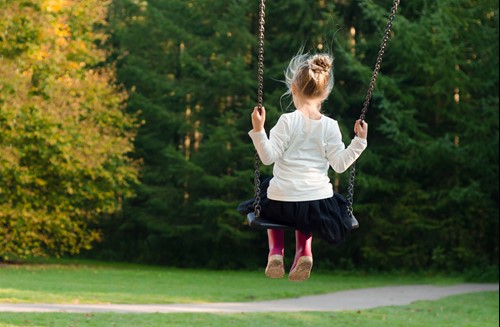How to Talk to Your Kids About Mental Health During Children’s Mental Health Week 2022
Whether it’s dealing with grief, bullying or self-esteem issues, many events can be difficult for children to handle. And they can take a toll on their mental health, just as with adults. However, there are a few ways you can help your kids build healthy coping strategies - and it begins with talking.
So stay tuned as we discuss some easy ways to talk to your children about mental health and help them navigate life's challenges…
How to tell if your child is struggling with mental health issues
You know your kids better than anyone, but sometimes among the hustle and bustle of day to day life, the signs and symptoms of a mental struggle might fly under the radar. Whilst every child is different and symptoms may be age-dependent, there are a few common signs that you can look out for:
- Loss of interest in day-to-day activities
- Socially withdrawn or quiet
- Mood swings or outbursts of anger
- Changes in appetite
- Struggling to concentrate
- Seeming overly agitated or argumentative
- Changes in sleeping patterns
As parents know, children are subject to so many hormonal changes, especially in the teen years, so it can be tricky to decipher between the teenage blues and full-blown depression. Either way, the best thing to do is take the struggles seriously, start a conversation and get some extra support in place.

How to start a conversation
It can be hard to start a conversation with your children about mental health. Often, we don't have the answers ourselves, and we can be concerned we might say the wrong thing. However, just knowing there is someone there to listen without judgment can make a world of difference on its own.
Why not try to set aside an hour in the day where you and your child will not be disturbed and let them know you are ready to listen, that they will not be judged, and that they will not get in trouble for talking about their feelings. It's important to emphasise these things as children are often unable to identify mood disorders in themselves and might be feeling guilty about ‘bad behaviour’.
Your job is to help them identify or label their feelings and think about when they happen. Are they sad in the mornings? Anxious about going to school? Or are they feeling low throughout the day? Try to reassure them that their feelings are normal, that they will pass, and if they don't, there is help and support available for them.
Identifying the root cause
Sometimes, there is a clear cause for your child's emotional discomfort. For example, feelings of grief from a grandparent or pet passing away. Or you might have reason to believe that your child is being bullied at school or over social media. Whilst the symptoms still need love and attention, tackling the root cause head-on may be the best cause of action.
Sometimes, self-esteem issues can cause mental distress, but why is this? If your child has self-esteem issues, it might revolve around a core belief that they are not worthy of love or not good enough. You can help them overcome this by ensuring your child knows that they are worthy. Make it known that worthiness cannot be given, it is something they intrinsically have. And reassure them that they are loved and that there is nothing that they could do that would ever stop you from loving them.
These messages of worthiness and your displays of unconditional love should become part of your day-to-day parenting to help prevent any negative feelings from causing issues down the road or worsening their mental health. We understand that changing your child's core beliefs can be tricky, but with regular love and reassurance, you will start to see improvements in no time at all.
How to tackle bullying at school
Bullying is a complicated subject, and it can be difficult to understand why your child may be a victim or even a perpetrator of it. Start by having an open and honest conversation with them and try to put your personal feelings aside. Whilst it’s easy to feel angry or protective and suggest they fight back or stand up for themselves, this could just add to their anxiety.
Bullies tend to target children that will give them the reaction they need, so if your child is quite emotional or reactive, you can suggest that try to not react and walk away. This might seem counterintuitive as an adult, but by refusing to be a victim, there is a good chance that the bully will get bored and move on.
If your child is the one doing the bullying, it might be because they are projecting their negative thoughts or feelings and are getting validation from seeing another child upset. So whilst it might be distressing to hear that they are a bully, it is simply the other side of the coin and signifies an internal emotional struggle.
All schools are legally required to have an anti-bullying policy, so get in touch with the headteacher at your school to have an open and honest discussion. Often, this discussion will help provide context and supply you with more tools to tackle the situation. It might be worth giving the school time to initiate their anti-bullying policy to see if things improve, but if there are any incidents in the meantime, keep a log of the date and time and notify the school.


Resources for you and your children
There are loads of great resources out there to help your children make sense of their thoughts and feelings. Providing other points of view could help build their confidence and reassure them that their feelings are natural.
Some great books for primary school-age children include:
- The Problem with Problems by Rachel Rooney
- When Sadness Comes to Call by Eva Eland
- The Worries by Jion Sheibani
- How to be Me by Cath Howe
- Owen and the Soldier by Lisa Thompson
Books for secondary school-age children:
Older secondary school children might be able to read general mental health books aimed at adults but there are plenty of carefully crafted titles for those going through common teen problems:
- You Will Be Okay by Julie Stokes
- Eliza and Her Monsters by Francesca Zappia
- Back On Track by Matthew Burton
- Lost by Eve Ainsworth
Self-help resources
You can also encourage your child to reach out for help themselves by:
- Speaking to teachers, form leaders or headteachers
- Joining peer-support programmes or groups
- Talking with the school mental health nurse
Support for parents
It can be tough to support a child going through complicated mental health issues, especially if there are other children in your household. Here are a few things you can do:
- Contact a mental health charity for help like Mind or YoungMinds
- Make an appointment for your child with their local GP
- Speak to a mental health counsellor and/or therapist
- Read the book: Anxiety, Worry, OCD and Panic Attacks by Lauren Callaghan
- Check out Action for Childrens’ Parent Talk hub for resources and live chat
Remember, there is no reason to feel guilty about getting help for your children - no parent is expected to be a mental health expert, so reach out for help when you need it.
When is Children's Mental Health Week?
Children's Mental Health Week will be taking place from the 7th-13th of February 2022. Hosted by Place2Be, they have loads of helpful resources and advice for dealing with children's mental health. The theme this year is ‘growing together', and it encourages discussion between parents and children, alongside exploring how they can help others to grow.
Now you know how to talk to your children about mental health, self-esteem and peer-related issues, you’ll have your children back to their normal, happy selves in no time at all.